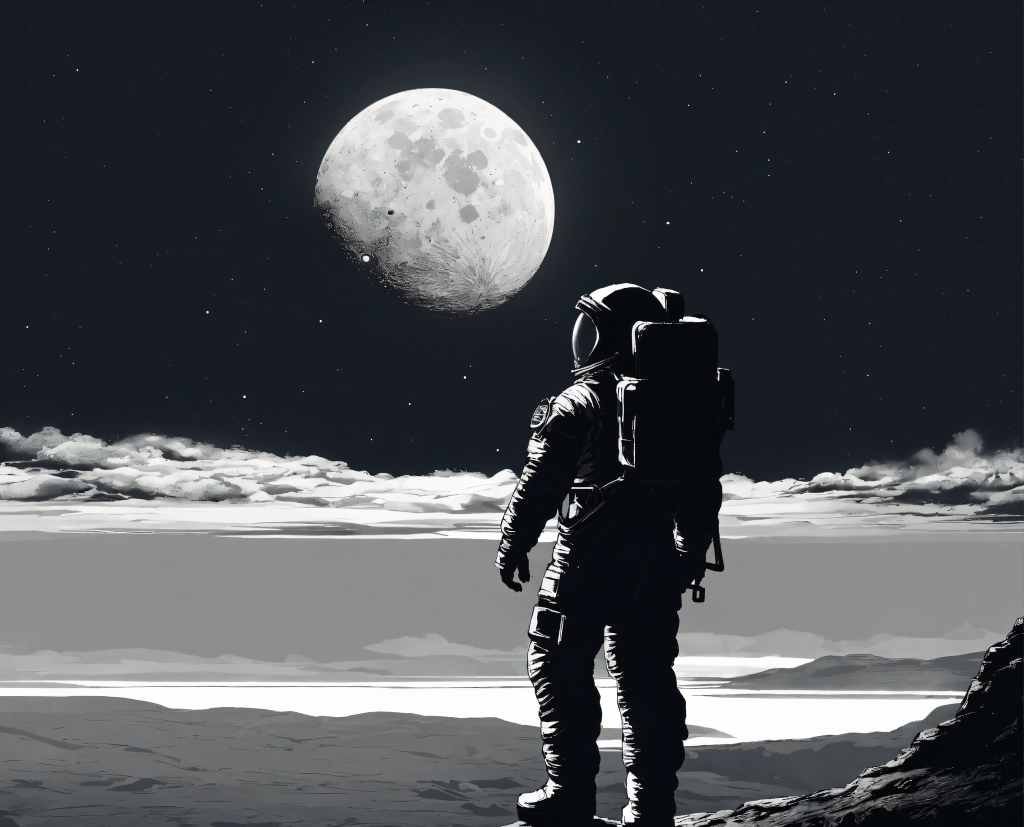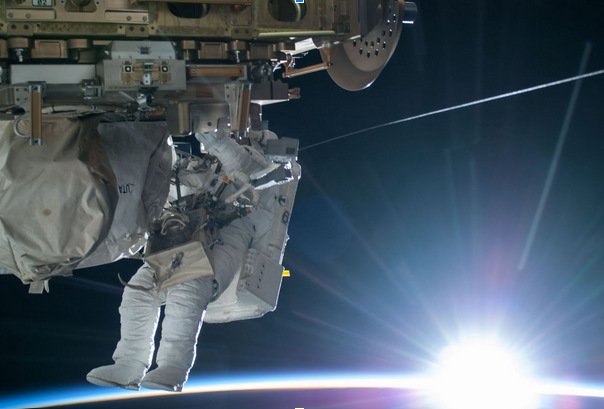Hey there, space enthusiasts! We have put together this article to shed some light on the brave astronauts who have lost their lives in the pursuit of space exploration. I know it is a heavy topic, but we must remember the sacrifices made by these early pioneers as we continue to push the boundaries of what is possible in space travel.
We will be taking a closer look at some of the worst space accidents in history, like the Apollo 1 fire and the Soyuz 11 depressurization incident, and exploring the most significant dangers astronauts face. I will also address some conspiracy theories and myths that have sprung up around lost cosmonauts and secret space missions.
However, do not worry; it is not all doom and gloom! We will also discuss the incredible advancements in space technology that have made space travel safer. I will share some hypothetical scenarios about what would happen if an astronaut got stranded in space and how modern spacesuits and rescue protocols could help them survive.
At the end of the day, our goal with this article is to pay tribute to the brave men and women who have given their lives in the name of space exploration while also looking toward a future where space travel is safer and more accessible than ever before. We hope you will join us on this journey of remembrance and discovery as we explore the final frontier together!
The pace of today’s space tech is genuinely overwhelming — tourist flights, orbital hotel projects, Moon bases, and Mars colonization — astonishing progress made possible thanks to the early explorers who undertook enormous risks. It makes one wonder — is the list of astronauts lost in space long? Fortunately, not too long. The only astronauts lost in space forever are 2 Soviet and 2 NASA crews, 18 people in total, who died on their respective missions. Below, we will tell you what happened to them and discuss a few hypothetical scenarios of what would happen if a person got stranded.
Worst Space Accidents with Human Losses

Space tech was highly experimental in the 1960s and early 70s — not even the training sites were safe. For example, in January 1967, a fire at the Kennedy Space Center killed the Apollo 1 crew while they were testing equipment for the upcoming mission. In January 1967, the first person died on his return from orbit — a Soyuz 1 module crashed, killing Vladimir Komarov—Soyuz 11 capsule depressurized on the descent, and all three people aboard suffocated.
NASA Challenger and Columbia shuttle crashes, even though they happened later (1986 and 2003, respectively), added 14 more astronaut casualties to this list — each time, the full shuttle complement of 7 astronauts died. However, the Soyuz 11 crew, which included cosmonauts Georgy Dobrovolsky, Vladislav Volkov, and Viktor Patsaev, was the only mission where people lost their lives beyond the Karman line.
Has an Astronaut Ever Gone Missing in Space?
Fortunately, no, but people have always been fond of conspiracy theories. The Cold War was a perfect time for spreading such myths, and the USSR’s unwillingness to disclose much about its internal affairs threw more than enough oil on this Cold War fire. A whole series of myths about phantom cosmonauts got lost in secret space missions forever.
And so you know, according to these myths, the first person to go on a spaceflight was not Yuri Gagarin but Vladimir Ilyushin. Moreover, Gagarin did not die in a plane crash — he was one of those people whose secret space death was covered up by another official explanation. However, according to Orbital Today and other credible resources, none of these rumours can be substantiated with evidence, and quite a lot of them have already been debunked.
What Is the Biggest Danger to Astronauts in Space?
Of course, people in outer space have always faced dangers. Technological failures posed the greatest threat to astronauts in the early days of research and exploration. Even though the mission mortality rate remains low, most tragic deaths happened because of:
Parachute system malfunction (Soyuz 1);
- Module detachment system malfunction and subsequent cabin depressurization (Soyuz 11);
- Booster separation failure and subsequent deviation from the axis (Challenger);
- Detached insulation and the overheating it caused on the descent (Columbia).
Another mission, Apollo 13, almost ended in disaster because of a technical malfunction — the oxygen tank exploded, and the air supply started running low. Luckily, the Apollo 13 team could use the lunar model as an improvised lifeboat, and all three crew members returned safe and sound.
What Happens to Astronauts Who Are Lost in Space?

The fact that no one was lost in space is reassuring, just as a relatively low mission causality rate. However, let us imagine — what would happen? After all, we are about to enter a new research and exploration stage. How safe are today’s astronauts?
The most common question is — what happens to a body in space without a suit? Short answer — nothing good. Most fiction movies show us that a person instantly freezes, which is true to a certain degree. However, before the extremely low temperatures would have a chance to kill an unfortunate astronaut, a suit-less person would die of suffocation within no more than 90 seconds. Luckily, nothing like this ever happened before, but based on hypothetical estimates, a person would lose consciousness first, and death would follow in the next minute.
Another danger of open cosmos for anyone without a suit is a rapid drop in atmospheric pressure, which would cause our blood to boil. Only after complete suffocation and boiled blood would the body start to deep freeze. This unpleasant picture perfectly explains why today’s spacesuits are practically mini spaceships with communication and life support systems, sometimes even with propulsion capability.
So, if accidentally stranded in suits, can astronauts return from space? Of course, the propulsion system in a suit will not be enough for a controlled flight back home, but if an astronaut got separated from the main ship for some reason, he would have up to eight hours of life support to survive. So, if there is no other emergency aboard the main spaceship, the crew aboard would have enough time to react. However, we can only hope such situations will never come to life!
General Asked Questions
What were the worst space accidents with human losses?
- The worst space accidents with human losses include the Apollo 1 fire in January 1967, the Soyuz 1 crash in January 1967, the Soyuz 11 depressurization incident, and the NASA Challenger and Columbia shuttle crashes in 1986 and 2003, respectively.
Has an astronaut ever gone missing in space?
- No, no astronaut has ever gone missing in space. However, there have been various conspiracy theories and myths about phantom cosmonauts getting lost in secret space missions forever, particularly during the Cold War era. These rumors have not been substantiated with evidence and have been largely debunked.
What is the most significant danger to astronauts in space?
- In the early days of space exploration, technological failures posed the greatest threat to astronauts. Most tragic deaths happened because of parachute system malfunction (Soyuz 1), module detachment system malfunction and subsequent cabin depressurization (Soyuz 11), booster separation failure and subsequent deviation from the axis (Challenger), and detached insulation and the overheating caused by the descent (Columbia).
What would happen to an astronaut stranded in space without a suit?
- If an astronaut were to be stranded in space without a suit, they would die of suffocation within no more than 90 seconds. The shallow atmospheric pressure would cause their blood to boil, and only after complete suffocation and boiled blood would the body start to deep freeze. This highlights the importance of modern spacesuits, essentially mini-spaceships with communication and life support systems.
Concluding Lines
While the early days of space exploration were dangerous, the astronaut mortality rate has remained relatively low. No astronauts have ever actually gone missing or been stranded in space forever. However, if an astronaut were separated from their spacecraft, they would only have limited life support to survive until they were rescued. As we enter a new era of space travel, let us remember the sacrifices of the early space pioneers while continuing to develop technologies and protocols to ensure astronaut safety. Though accidents may still occur, thorough training, planning, and risk mitigation can help us avoid catastrophe. With diligence and care, future generations of astronauts can push new frontiers without suffering the tragic fates of those lost in the first wave of space exploration.
